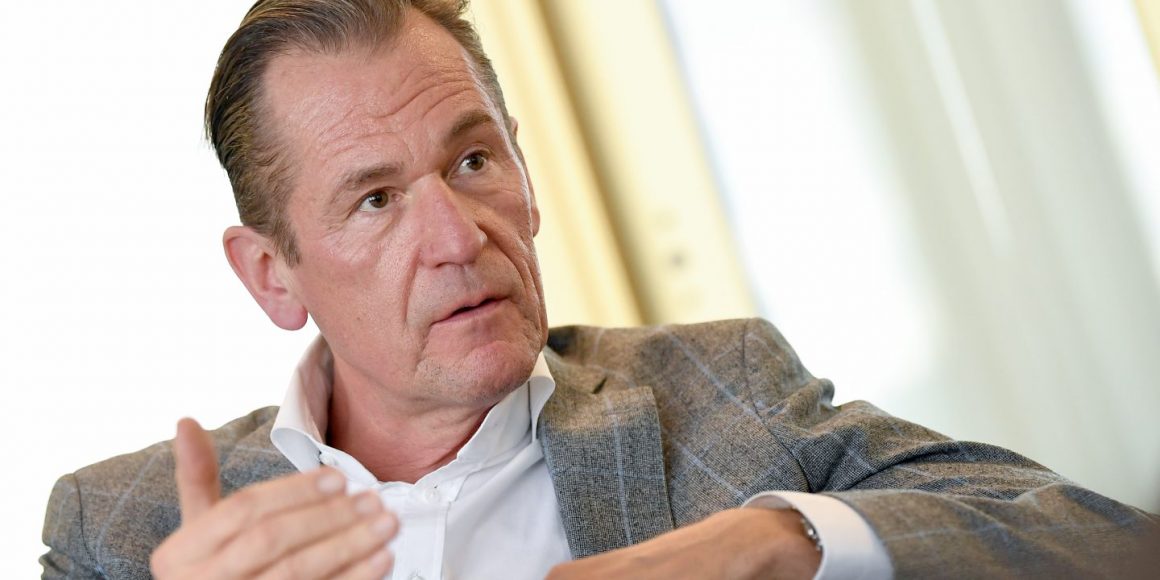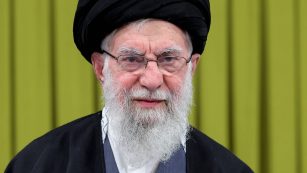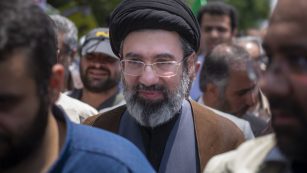In the year of 1996, when Mathias Döpfner took over the traditional daily »Hamburger Morgenpost« as editor-in-chief at the age of 33, he still was practicing. Döpfner who has a PhD in musicology liked to play the keyboard of the tabloid. What appeared to be his intellectual joy sometimes seemed to be slightly out of key for his co-workers though. But eventually, the staff got used to an editor‐in‐chief, who always thought a bit faster and further – even if that did not always directly affect the quality of the paper in those early years. What, however, Döpfner the editor perhaps could not yet fully implement, Döpfner the media manager later kept in mind.
When he was only 18 years old, Mathias Döpfner already wanted to become editor‐in‐chief of »Die Welt«. On the occasion of the paper’s 70th anniversary, he reminiscenced: »When I was eighteen, I had a concrete plan: I wanted to become Editor‐in‐Chief of ›Die Welt‹. ›Die Welt‹ had the most beautiful name, the best layout, and it was almost always the most up to date of the papers. Only the quality of the texts left something to be desired. A breath of fresh air was needed – in other words: Me. It took another seventeen years for my great wish to become true, enough time to turn presumptuousness into productive self-doubt.«
There are not many who use the power of the Fourth Estate to stand up for Israel and for living Jews.
BOARD After two years at the helm of »Die Welt«, bringing some change and innovation to that somewhat outmoded broadsheet, in July 2000 his path led Mathias Döpfner to where he would decisively influence and steer the German newspaper and publishing industry – to the Management Board and then, 18 months later, to the post of Chief Executive of Axel Springer Publishing.
This is not the place to dwell on Mathias Döpfner’s merits in restructuring and digitizing the newspaper industry. This, after all, is about the Leo Baeck Prize and not about the German Association of Newspaper Publishers, which Döpfner, a native of Bonn, also heads. There are not many in the press who stand up for Israel and living Jews like Mathias Döpfner does. The more unassailable he became as an executive, the more he turned his attention towards German political developments, combining moral outrage, journalistic fervor and a statesmanlike determination.
The »non-Jewish Zionist,« as he described himself in 2014 when he was awarded the European B’nai B’rith Award, focused foremost on Israel and Diaspora Jewry, whether in Germany or in the United States. Again and again, Mathias Döpfner spoke out with pointed essays and comments.
Mathias Döpfner is »a mentsch«, as they say in New York.
ISRAEL In November 2017, after a Frankfurt court ruled that a Kuweiti airline could not be expected to carry an Israeli from Germany, since that would contravene Kuweiti law, an outraged Döpfner wrote: »If in the country that less than eighty years killed millions of people because they were Jews or because they did not want to hate Jews, a judge declares (or is forced to declare) that it is unreasonable to compel an airline to carry an Israeli passenger because the airline could face problems in its homeland, that is awful. That there is no cry of outrage is worse. It is worrisome for our understanding of democracy and human rights.«
There are not many who use the power of the Fourth Estate to stand up for Israel and for living Jews, when it’s far easier to only mourn the dead. And it also goes against the grain of the media mainstream to brand the habitual and omnipresent »criticism« of the state of the Jews for what it is: Anti-Semitism in a new guise. Thus one cannot value highly enough what Mathias Döpfner does for (German) Jewry – whether as an author, who loudly and clearly proclaims inconvenient truths or as a quiet mediator: Döpfner is »a mentsch«, as they say in New York. And he is an ideal Leo-Baeck-Prize laureate. Mazal tov!










